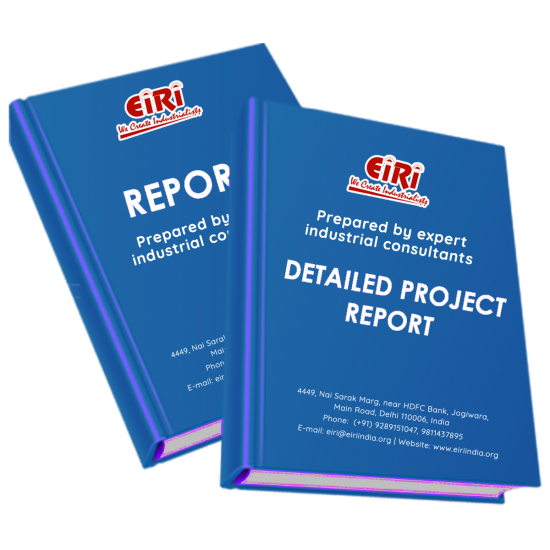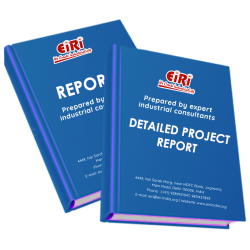Detailed Project Report on Cotton (Rui) from Waste Cotton Cloth

- More than 40 years of experience
- Managed by expert industrial consultants
- ISO 9001-2015 Certified
- Registered under MSME, UAM No: DL01E0012000
- 24/5 Research Support
Get your quesries resolved from an industry expert. Ask your queries before report or book purchase. - Custom Research Service
Speak to the our consultant to design an exclusive study to serve your research needs. - Quality Assurance
All reports are prepared by highly qualified consultants & verified by a panel of experts. - Information Security
Your personal & confidential information is safe & secure.
COTTON (RUI) FROM WASTE COTTON CLOTH
(EIRI/EDPR/1621) J.C. 424INR, 1039US$
INTRODUCTION
The original of the cotton textile industry, the largest single industry in the country. In India, cotton has had a pride of place among cash crops from the earliest times. At present, the area under cotton crop is over 8 million hectares.
Cotton can be recycled from pre-consumer (post-industrial) and post-consumer cotton waste. Pre-consumer waste comes from any excess material produced during the production of yarn, fabrics and textile products, e.g. selvage from weaving and fabric from factory cutting rooms. Post-consumer waste comes from discarded textile products, e.g. used apparel and home textiles. During the recycling process, the cotton waste is first sorted by type and color and then processed through stripping machines that first breaks the yarns and fabric into smaller pieces before pulling them apart into fiber. The mix is carded several times in order to clean and mix the fibers before they are spun into new yarns.
The resulting staple fiber is of shorter length compared to the original fiber length, meaning it is more difficult to spin. Recycled cotton is therefore often blended with virgin cotton fibers to improve yarn strengths. Commonly, not more than 30% recycled cotton content is used in the finished yarn or fabric.
Because waste cotton is often already dyed, re-dyeing may not be necessary.[3] Cotton is an extremely resource-intense crop in terms of water, pesticides and insecticides.[4] This means that using recycled cotton can lead to significant savings of natural resources and reduce pollution from agriculture.
COST ESTIMATION
Plant Capacity 2400 Kg./Day
Land & Building (1000 sq.mt.) Rs. 1.43 Cr
Plant & Machinery Rs. 50.00 Lac
Working Capital for 1 Month Rs. 24.08 Lac
Total Capital Investment Rs. 2.28 Cr
Rate of Return 30%
Break Even Point 53%
CONTENTS
INTRODUCTION
COTTON WASTE –
COTTON COMBER WASTE –
TYPES OF COTTON WASTE
COMBER NOIL
SPECIFICATION:
FLAT (UPPER CARDED WASTE)
SPECIFICATION:
DROPPING (LOWER CARDING WASTE)
SPECIFICATION:
CLEAN LIKKERIN (CARDING WASTE NO.1)
SPECIFICATION:
ROVING:
SWEEPING:
COTTON YARN WASTE & DENIM YARN WASTE:
OTHER KINDS OF WASTES AVAILABLE:
COTTON YARN WASTE
THESE INCLUDE:
HOSIERY WASTE (CLIPS & CUTTINGS)
USES AND APPLICATION OF COTTON
USES AND APPLICATIONS OF COTTON YARN
COTTON YARN SPECIFICATIONS:
COTTON YARN APPLICATIONS:
B I S SPECIFICATIONS
MARKET SURVEY
SUPPLY, DEMAND & TRADE
TOP COTTON EXPORTS BY COUNTRY
PRICE OUTLOOK
3.1 INDIAN COTTON PRODUCTION
3.2 INDIAN COTTON EXPORT AND IMPORT TRADE FLOW
OVERVIEW OF COTTON WASTE AND ITS APPLICATION
MANUFACTURING PROCESS OF COTTON FROM COTTON WASTE
PROCESS FLOW DIAGRAM
GUIDELINES AND SAFETY FROM COTTON DUST
PRINCIPLES OF PLANT LAYOUT
MAJOR PROVISIONS IN ROAD PLANNING FOR MULTIPURPOSE SERVICE ARE:
PLANT LOCATION FACTORS
PRIMARY FACTORS
1. RAW-MATERIAL SUPPLY:
2. MARKETS:
3. POWER AND FUEL SUPPLY:
4. WATER SUPPLY:
5. CLIMATE:
SPECIFIC FACTORS
6. TRANSPORTATION:
7. WASTE DISPOSAL:
8. LABOR:
9. REGULATORY LAWS:
10. TAXES:
11. SITE CHARACTERISTICS:
12. COMMUNITY FACTORS:
13. VULNERABILITY TO WARTIME ATTACK:
14. FLOOD AND FIRE CONTROL:
EXPLANATION OF TERMS USED IN THE PROJECT REPORT
1. DEPRECIATION:
2. FIXED ASSETS:
3. WORKING CAPITAL:
4. BREAK-EVEN POINT:
5. OTHER FIXED EXPENSES:
6. MARGIN MONEY:
7. TERM LOANS:
8. TOTAL LOAD:
9. LAND AREA/MAN POWER RATIO:
PLANT LAYOUT
SUPPLIERS OF DEALERS ADDRESS OF COTTON
SUPPLY OF RAW MATERIALS
COTTON WASTE
SUPPLIERS OF PLANT AND MACHINERIES
SHREADING MACHINE
CUTTING MACHINE
UNDER GROUND WATER TANK
FIRE FIGHTING EQUIPMENTS
BALE PRESS
DG SETS
APPENDIX – A:
01. PLANT ECONOMICS
02. LAND & BUILDING
03. PLANT AND MACHINERY
04. OTHER FIXED ASSESTS
05. FIXED CAPITAL
06. RAW MATERIAL
07. SALARY AND WAGES
08. UTILITIES AND OVERHEADS
09. TOTAL WORKING CAPITAL
10. TOTAL CAPITAL INVESTMENT
11. COST OF PRODUCTION
12. TURN OVER/ANNUM
13. BREAK EVEN POINT
14. RESOURCES FOR FINANCE
15. INSTALMENT PAYABLE IN 5 YEARS
16. DEPRECIATION CHART FOR 5 YEARS
17. PROFIT ANALYSIS FOR 5 YEARS
18. PROJECTED BALANCE SHEET FOR (5 YEARS)
How to Make Project Report?
Detailed Project Report (DPR) includes Present Market Position and Expected Future Demand, Technology, Manufacturing Process, Investment Opportunity, Plant Economics and Project Financials. comprehensive analysis from industry covering detailed reporting and evaluates the position of the industry by providing insights to the SWOT analysis of the industry.
Each report include Plant Capacity, requirement of Land & Building, Plant & Machinery, Flow Sheet Diagram, Raw Materials detail with suppliers list, Total Capital Investment along with detailed calculation on Rate of Return, Break-Even Analysis and Profitability Analysis. The report also provides a birds eye view of the global industry with details on projected market size and then progresses to evaluate the industry in detail.
We can prepare detailed project report on any industry as per your requirement.
We can also modify the project capacity and project cost as per your requirement. If you are planning to start a business, contact us today.
Detailed Project Report (DPR) gives you access to decisive data such as:
- Market growth drivers
- Factors limiting market growth
- Current market trends
- Market structure
- Key highlights
Overview of key market forces propelling and restraining market growth:
- Up-to-date analyses of market trends and technological improvements
- Pin-point analyses of market competition dynamics to offer you a competitive edge major competitors
- An array of graphics, BEP analysis of major industry segments
- Detailed analyses of industry trends
- A well-defined technological growth with an impact-analysis
- A clear understanding of the competitive landscape and key product segments
Need Customized Project Report?
- Ask for FREE project related details with our consultant/industry expert.
- Share your specific research requirements for customized project report.
- Request for due diligence and consumer centric studies.
- Still haven't found what you're looking for? Speak to our Custom Research Team
About Engineers India Research Institute:
Note: We can also prepare project report on any subject based on your requirement and country. If you need, we can modify the project capacity and project cost based on your requirement.
Our Clients

Our Approach
- Our research reports comprehensively cover Indian markets (can be modified as per your country), present investigation, standpoint and gauge for a time of five years*.
- The market conjectures are produced on the premise of optional research and are cross-accepted through associations with the business players
- We use dependable wellsprings of data and databases. What's more, data from such sources is handled by us and incorporated into the report
Why buy EIRI reports?
- Our project reports include detailed analysis that help to get industry Present Market Position and Expected Future Demand.
- Offer real analysis driving variables for the business and most recent business sector patterns in the business
- This report comprehends the present status of the business by clarifying a complete SWOT examination and investigation of the interest supply circumstance
- Report gives investigation and top to bottom money related correlation of real players/competitors
- The report gives gauges of key parameters which foresees the business execution






















